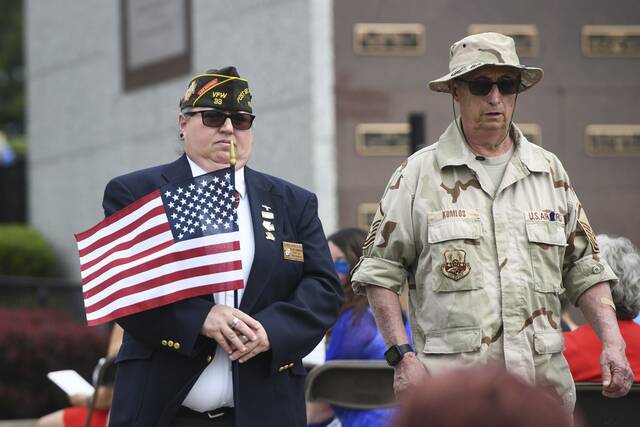For veterans transitioning from military to civilian life, the lack of support for the Department of Veteran Affairs (VA) has been a point of contention for years, with delays in care and unwarranted denials for service members. This November we celebrate Veterans Day and those who served in uniform — but it’s clear that the current support system at the VA for our veterans remains lackluster. While legislative action has been made through the MISSION Act, five years later, the community care program within this bill has yet to fully give veterans access to the health care coverage they need, and Congress originally intended.
Congress introduced legislation earlier this year to enshrine the community care program’s access and eligibility standards into law, yet no action has been taken while veterans struggle with physical and mental health issues alone.
The community care programs will never be truly effective as long as veterans’ health care decisions and access to care lack the proper institutional and legislative safeguards. And as veterans have experienced time and time again, throwing more money at the problem solves nothing. Instead, legislation such as the Veterans’ Health Empowerment, Access, Leadership and Transparency for our Heroes (HEALTH) Act of 2023 can help to fill in any cracks that remain in the system.
When Congress passed the MISSION Act in 2018, the newly formalized community care program was intended to provide more health care options for veteran communities outside conventional pathways within the Veterans Health Administration (VHA). Those options would help ensure veterans had access to their own doctors in the community within reasonable time or distance and weren’t weighed down by the bureaucratic hurdles that have long been emblematic of the VA. However, the MISSION Act has failed to push past the bureaucracy and realize this goal, and time is of the essence for many veterans seeking crucial health care services.
In recent years, growing disparities in veteran health care settings have left patients with delayed care and questions about manipulated wait times. But the problem of delayed system implementation goes well beyond numbers. In a March hearing before the Senate Veterans Affairs Committee, VA officials confirmed that outages and delays in the Oracle Cerner EHR system led to the death of four patients. These shortcomings in electronic health record management are pervasive across the veteran health care landscape — without immediate action, the VA will continue to be liable for what the agency’s own officials in March called “catastrophic harm” to veterans.
Repeated attempts to expand the VA’s reach so that more veterans have access to health care have ultimately backfired. Almost 3 million veterans live in rural regions, where access to care is an even more cumbersome challenge. And for many of these rural veterans, long wait times can be a matter of life or death. The average wait time for veterans seeking care is around a month for primary care and community care at VHA facilities. But these numbers are often substantially longer for veterans in rural communities.
Moreover, negligence within VA facilities has exacerbated the impact of long wait times on veterans seeking care. For example, officials at the Phoenix VA were keeping two sets of appointment books in order to mislead administrators about wait times. Whether a veteran is dealing with a physical or mental health crisis, this is gross mismanagement, and for veterans struggling with suicidal ideation these fabricated obstacles can be a death sentence.
That is why the bipartisan bill recently introduced by Sens. Jerry Moran, R-Kan., and Kyrsten Sinema, I-Ariz., which would codify the rules around access and eligibility for community care, is crucially important. Notably, codification would put the legal onus on the VA to grant veterans the access to health care they’ve been promised.
The legislation would enshrine current standards for community care as the minimum standard and expand to include extended care standards. It would also reform the rules around how officials at VA medical facilities calculate wait times both for the purposes of determining eligibility and for scheduling or rescheduling appointments, reducing the harmful impact of long wait times on veteran health care. Moreover, the bill would improve the VA’s system and facility infrastructure, allowing for greater clarity on the current shortcomings impeding access to care.
To serve our nation is the ultimate act of courage. And the men and women who put their lives on the line to defend our freedoms deserve nothing but full commitment from our political leaders. As the current framework around community care continues to create barriers for veterans, it’s time for lawmakers to step up and safeguard their access to timely, quality health care. Congress can not afford to turn a blind eye, not when veterans’ lives are at stake.
Darrell Owens is director of government relations for America’s Warrior Partnership. He serves as an Army Reserve officer and was a former congressional staffer.








